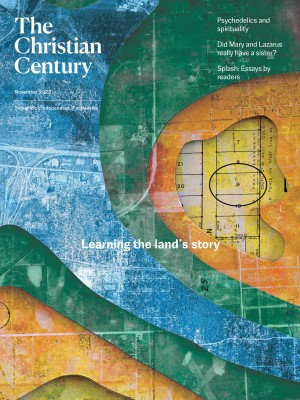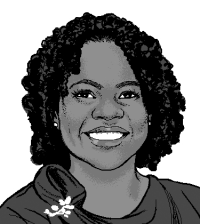
(Photo by Domino on Unsplash)
Like other people who enjoy a good road trip, I can clearly recall the transition from paper maps with their intricate folds to directions printed from MapQuest to the current ease and comfort of turn-by-turn directions on our built-in navigation systems and smartphones. I have grown to love the artificial voice telling me where to turn and where to exit. But I also have some fond memories of getting lost in the days before GPS—and of the unexpected lessons I learned from those experiences.
The plan was perfect: a girls-only road trip before we all returned to jobs, schools, and family responsibilities. We piled into the rental car, turned on the music, and hit the highway for a straight drive due south. But between construction detours and one too many pit stops for sightseeing and shopping, we found ourselves lost. I vividly remember the group of us on the side of the road, looking at a large paper map, debating which exit would put us on the right path. A quick stop at a gas station and directions hastily scribbled down on a napkin proved to be just what we needed. We got back on the road and soon reached our destination. Years later, we laugh about how the group of us, with all our degrees and combined global travel experience, struggled to get somewhere just four hours from home.
Read our latest issue or browse back issues.
I haven’t seen a paper map in years. And a cell phone in my hand can help me navigate anywhere, in almost any language, walking or driving. But if you’ve ever been lost, you know the feeling of vulnerability and uncertainty. You don’t know what’s down the unknown road; you can’t be sure that it’s a path that will take you to your destination. Being lost means wrong turns and attempts at correction until you find your way—or until you find someone willing and able to help.
As I stood in church recently, singing “I once was lost but now I’m found,” I was profoundly moved by the presence of the One who finds me, again and again, no matter how far I’ve strayed from the path. God is the force who is ever present, always available, always accessible, always there with arms stretched wide open to me. I am the wayward child, constantly on the go. I am continuously moving, seeking, traveling, struggling, resisting, rejecting, disobeying, and getting lost. God is patiently waiting to give me direction, set me on the right path, and ensure I can always find my way back to God’s love.
More times than a few, I have lost my patience. I have lost my peace of mind. I have lost my joy. And my frail human endeavors rarely return me to the right track. The maps I have drawn and the five-year plans I have devised rarely get me to the right place. I have felt so far away from God and from my right destination that it was difficult to imagine ever finding a way out of my mess and despair. I’ve kept leaning on my own understanding and sinking deeper into confusion. It’s been the act of surrendering my vain attempts to find my own route that has finally yielded a clarity of purpose and direction as to the way I should go. I am called to trust in an omniscient and loving God who sees what I cannot see, who knows where all roads lead, and who, most importantly, wants the best for me.
I think about the gas station attendant who helped a group of road-tripping girls so many years ago. We didn’t know him, but we trusted him enough to scribble down his hastily given directions and follow them to the letter. We trusted that he knew the area better than we did and had likely guided many other lost travelers. We trusted his word even above the official map of the area we held in our hands. Why is it so easy to trust the words of a stranger but so hard to trust the promises of a perfect, loving God who has never failed us yet?
I’m grateful for all the devices which make travel easier and safer. I especially love the rerouting function of my navigation system, which keeps me on track when I veer off course. But devices can fail, and maps can be misread. A driver still needs to read the road signs and pay attention to the detours. Even with all our technology and skill, it’s possible to end up lost and far from your destination.
As a person of faith, all my hope rests in my belief that God’s word is true. God seeks and saves those who are lost, no matter how far they’ve strayed. God cares about lost sheep, those who may veer from the path and even those who feel unworthy to return home. Ultimately, I stand on the promise of the One who seeks out the lost, brings back the scattered, and binds up the broken. It is a lesson I learn again and again: I have never been so far lost that the grace of God has failed to find me.







